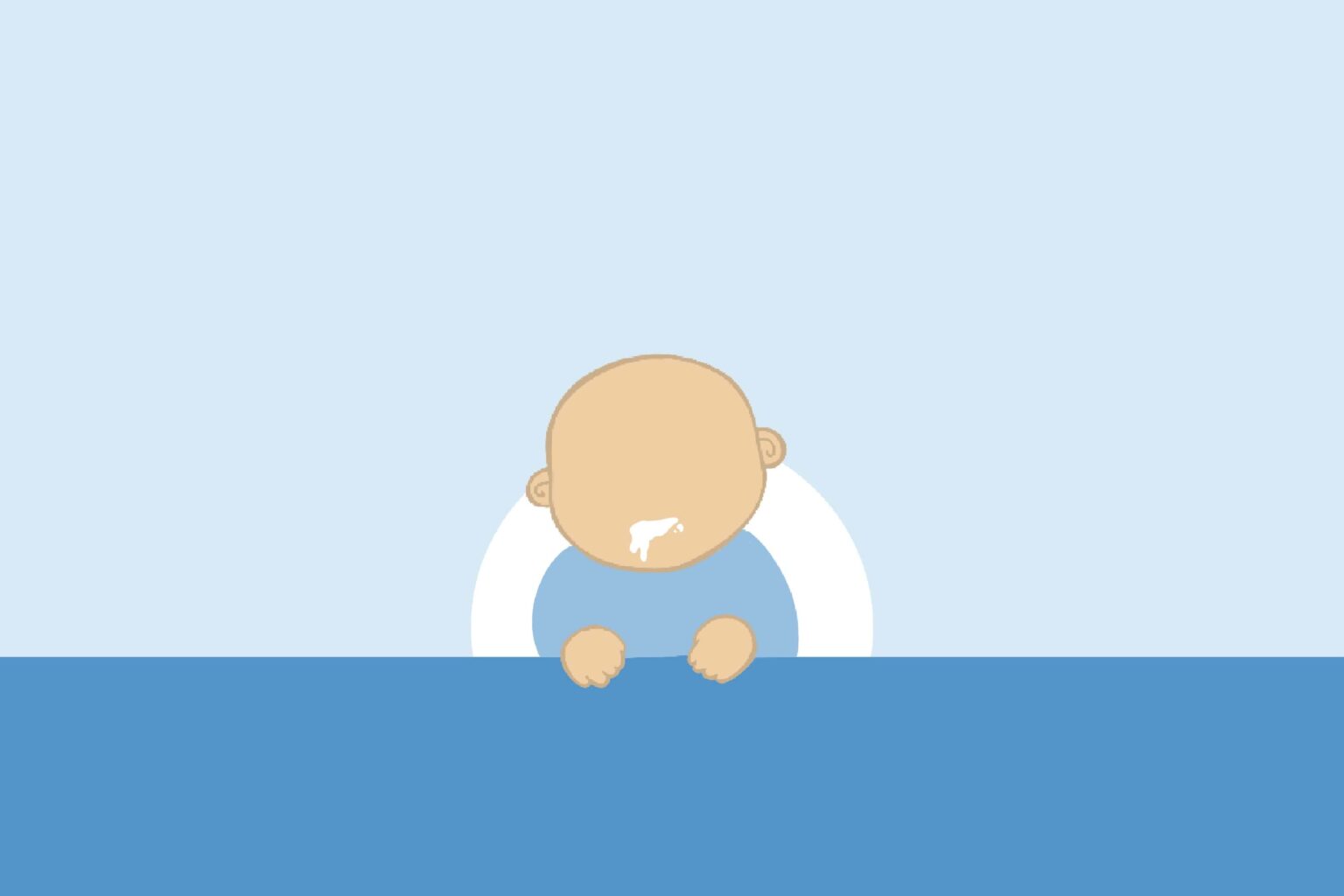Vomiting in Infants

Vomiting in infants, while upsetting, is common and usually does not signal a serious illness. After all, everyone gets an upset stomach once in a while, and vomiting is a common symptom of many childhood illnesses. However, there are some cases where vomiting signals something more serious.
Vomiting should not be confused with spitting up. Most babies spit up—sometimes often—and are perfectly normal and healthy. In fact, don’t be surprised to see your baby smiling while spitting up, even if you don’t find it especially amusing. Vomiting, on the other hand, is more than just spitting up. Vomiting is when the stomach contents are forcefully ejected from the stomach through the mouth and looks and feels uncomfortable.
A newborn who vomits more than once may be developing a condition called pyloric stenosis. This occurs when the valve between the stomach and the small intestine thickens so the stomach contents are unable to leave the stomach. This results in forceful, or “projectile,” vomiting especially right after eating. If your baby vomits like this after every feeding, call your child’s doctor right away.
Infant vomiting can also be a symptom of GERD. GERD, or gastroesophageal reflux disease, in infants is suspected when a baby’s normal spitting up gets progressively worse over time. The baby may also have pain either during or after feeding and seem irritable or arch their back after feeding. Left untreated, GERD can lead to breathing problems like wheezing, as well as poor growth. If reflux is suspected, your doctor will recommend smaller, more frequent feedings, frequent burping, and keeping the baby in an upright position for at least thirty minutes after feeding. If this fails to improve the reflux, your doctor may try a medication or a change in formula.
Infections can also cause vomiting in infants. A stomach bug, ear infection, urinary tract infection, meningitis, and appendicitis can all cause vomiting. If your baby appears uncomfortable, vomits more than once or twice, or has fever, it is best to contact their pediatrician right away.
Sources:
- Neonatal Handbook
- Vomiting in the Newborn Infant.
The American Academy of Pediatrics, “The Complete and Authoritative Guide Caring for your Baby and Young Child: Birth to age 5” pp.522-524
Powered by Bundoo®










